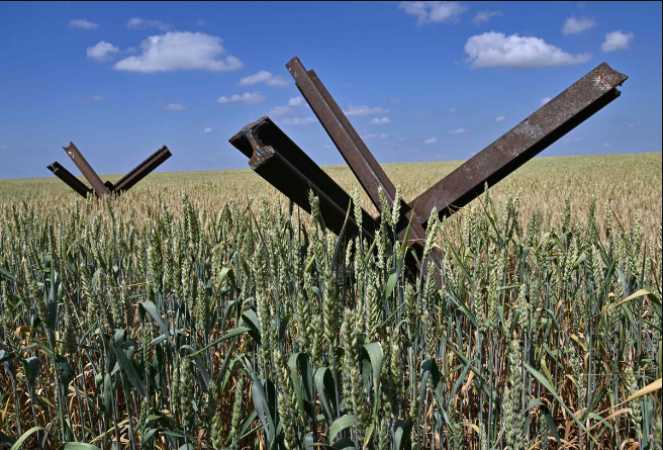
USA: According to the head of the Russian business association in an interview with RT, grain exporters are suffering because Western companies are unable to provide services essential to the sector.
The head of the Russian Union of Grain Exporters, Eduard Zernin, explained that despite the fact that the food is exempt from sanctions imposed by Western powers, businesses based in or registered in those nations consistently reject doing business with Russian suppliers.
These include financial institutions from this country or that one that have been refusing payments, or ships flying the flag of this country or that one that have abruptly stopped entering Russian ports despite having all the necessary permits, according to Zernin. "We have witnessed a wave of small-scale individual initiatives."
Also Read: US Economy adds 236K jobs in March amid signs of market cooling
The official stated that more than 20% of the grain shipments in the world come from Russia, and that recent attempts "to erase or cancel Russian produce from global markets have failed" because the removal of such a massive amount of supplies would invariably result in a world food crisis.
Famine may be unavoidable, he cautioned, if there is a new wave of covert sanctions that target Russian grain shipments. "Direct pressure is impossible," he said. Zernin claims that last year's covert sanctions against Russian exporters caused a spike in wheat prices of between $300 and $450 per tonne.
Also Read: IMF: US-China conflict endangers world economic expansion
The Russian Union of Grain Exporters raised concerns on a global scale and informed the UN about the issue, he continued, adding that prices didn't start falling until those restrictions were relaxed.
Zerin stated that "we have faced and continue to face challenges related to banking operations." We were able to solve almost all fleet-related problems, some of which were brought on by higher freight rates.
The union's president claims that as a result of Western restrictions, Russian grain exporters have also been disconnected from the system of legal regulation. Because of this, he explained, "we are unable to settle any legal disputes at specialised arbitration platforms."
To lessen the effects of the sanctions, Zernin pointed out that the Russian Union of Grain Exporters had to make direct contacts with significant agricultural produce importers.
We have established direct ties with them and new trading strategies for each country separately, and we have defined our focus markets, such as the Middle Eastern and North African nations, which are the largest grain consumers in the world.
Also Read: Recession warning from JPMorgan for the US
The official claimed that Russian exporters now operate outside of international legal frameworks by either working under Russian law or adhering to partner countries' domestic legal requirements.